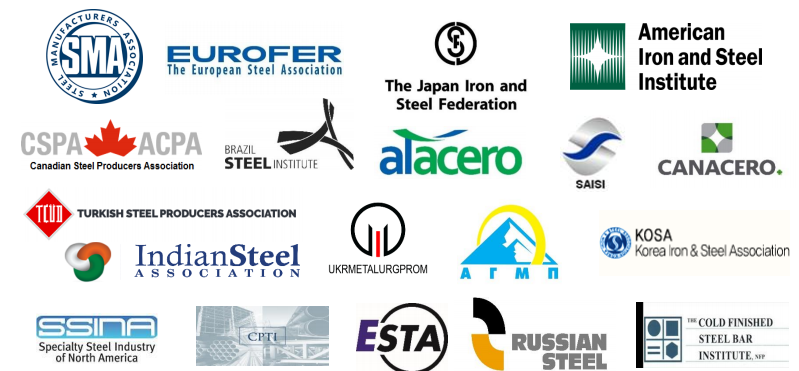Government/Policy

October 21, 2019
Steel Associations Urge Action on Excess Capacity Crisis
Written by Sandy Williams
Steel industry trade associations from across the globe united in calling for increased efforts to tackle excess steel capacity. The group of 19 associations praised the OECD Steel Committee for highlighting the challenges facing the industry and urged the G20 to extend the mandate of the Global Forum on Steel Excess Capacity. The 87th Session of the OECD Steel Committee met in Paris on Sept. 26-27.
The press release from the industry associations follows:
Nineteen steel industry associations in the Americas, Europe, Africa and Asia today called for the governments of steelmaking economies to step up efforts to effectively tackle persistent global excess capacity in the steel sector, including by quickly implementing strong rules and remedies that reduce excess capacity, its impact and its causes. The industry groups emphasized that governments should use all available mechanisms and negotiation forums, including the G20 Global Forum on Steel Excess Capacity, to:
• Ensure the reduction of excess capacity;
• Eliminate market-distorting subsidies and other support measures that contribute to excess capacity;
• Uphold effective trade remedies to ensure a level playing field driven by market forces;
• Support stronger international rules against subsidies and preferences to state-controlled enterprises;
• Enhance transparency and cooperation; and
• Create robust mechanisms to facilitate the exit of inefficient firms.
The industry groups commended the Sept. 30, 2019 statement by Ulf Zumkley, chairman of the Organization for Economic Cooperation and Development’s (OECD) Steel Committee, which expressed grave concerns about the unexpected growth of new steelmaking facilities in 2019, exacerbating global excess capacity and contributing to trade tensions. Participants in the OECD Steel Committee reiterated the need for further capacity reductions in relevant steel-producing economies and urged members to extend the G20 Global Forum on Steel Excess Capacity past its current expiration in 2019.
“We are grateful for the efforts made to date by the G20 and OECD governments to address excess capacity and to support a level playing field at the G20 Global Forum on Steel Excess Capacity and OECD Steel Committee,” the industry groups said. “Unfortunately, effective reductions in capacity and concrete actions to remove government measures that distort markets, including raw materials markets, have not been adequate to date. Efforts by governments to eliminate practices that lead to excess capacity should be redoubled. We are hopeful that the diligent efforts of Japan, the current G20 chair, are successful in extending the G20 Global Forum on Steel Excess Capacity beyond 2019, and we urge all G20 and OECD steelmaking economies to pursue all vigorous means to obtain substantive results on the critical problem of steel excess capacity.”








